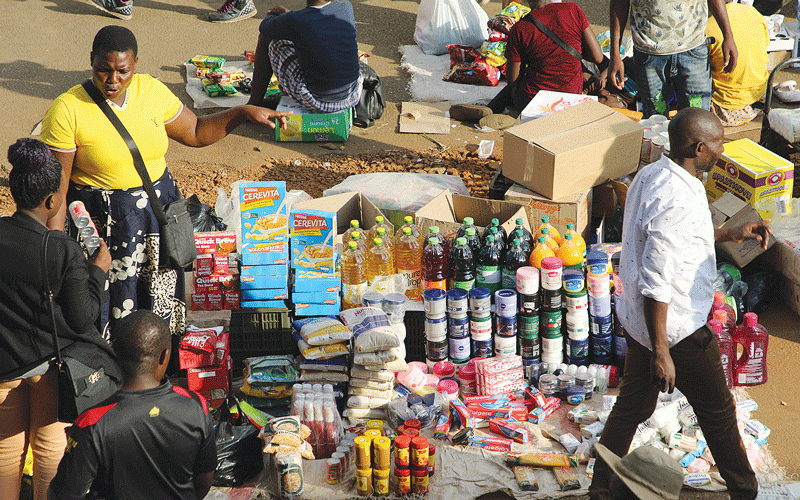
KUDZAI KUWAZA MORE than 2 600 workers in the granite sector could be rendered jobless following the government ban on the export of raw granite, the Zimbabwe Independent can reveal.
There are claims that the government ignored pleas for more time by some operators to set up beneficiation structures.
The government recently banned the exportation of unprocessed granite unless authorised by the Minister of Mines and Mining Development as part of efforts to accelerate the beneficiation of minerals. Statutory Instrument 127 of 2022, the Mines and Minerals (Prohibition Order of Exportations of Unprocessed Granite) Notice, 2022, was gazetted by Mines and Mining Development minister, Winston Chitando in terms of section 3 of the Base Minerals Export Control Act. However, pre-existing valid contracts for the export of unprocessed granite will be allowed to continue until they expire, which will give many in the business time to set up their cutting and polishing operations within Zimbabwe or hire others to do so.
Granite operators, who spoke to the Independent, on condition of anonymity, said the abrupt ban on granite exports has devastating consequences on jobs in the sector.
“Granite operators have already started letting go of employees as a result of this ban and over 2 600 workers are going to lose their jobs. We are going to lose not only customers but our competitiveness as they will flock to other markets such as India, Indonesia, and South Africa,” one operator revealed.
Another operator said they are not against the beneficiation of raw granite but needed more time to set up the beneficiation structures. The operator added that they made an appeal to the government before the ban asking for a period of reprieve to enable them to set up the requisite structures for the beneficiation of the unprocessed granite.
The operators have since been advised to prepare submissions that will be presented to the government.
“We are disappointed in our minister Chitando who has failed to represent our interests in government. We expected that since he is one of us, he would help advance our cause but he really let us down,” the operator said.
- Chamisa under fire over US$120K donation
- Mavhunga puts DeMbare into Chibuku quarterfinals
- Pension funds bet on Cabora Bassa oilfields
- Councils defy govt fire tender directive
Keep Reading
Some of the granite operators said they had already brought equipment for the beneficiation of unprocessed granite and were in the process of setting up before the imposition of the ban.
“We had already imported equipment for beneficiation of granite and we were in the process of setting up systems which takes time and this is why we had asked the government for a reprieve,” another operator said.
“The abrupt shutting down of granite imports makes a mockery of the government’s mantra that the country is open for business.”
However Mines and Mining Development deputy minister Polite Kambamura said granite operators have been given ample time to put in place beneficiation processes before the ban was put in place.
“We have given them a long rope. Government was so considerate by opening the export window to those who could present solid plans to beneficiate locally,” he said.
“New players in the sector should also plan along the same lines of setting up an extraction operation coupled with a slab cutting and polishing plant.”
Kambamura said the main thrust in the mining sector under the government’s economic blueprint National Development Strategy 1, is local beneficiation and value addition of the country’s minerals.
Granite is mainly extracted in Mutoko and Mt Darwin where producers are exporting granite in its raw form. Producers are already wailing from various operational challenges, which include power outages and foreign currency shortages, resulting in the closure of half of the operating companies over the past two years.
Granite makes up about 1,6% of Zimbabwe’s total exports, far below gold (32%) of the country’s total exports and raw tobacco (14%). About 56% of Zimbabwe’s granite goes to Mozambique, and the rest, according to the Minerals Marketing Corporation of Zimbabwe, is exported to Italy, South Africa, Germany, Spain, the United Kingdom, China, Japan, Malaysia, Singapore, Argentina, the United States and Canada.
In general, a one-square-metre (10,8-square-foot) slab of raw granite that is 8mm thick (31 inches) sells for US$50 to US$60.
It is usually more expensive to buy black granite that is processed and polished in Zimbabwe than to buy slabs that are processed and polished outside the country because the equipment used elsewhere is more efficient, according to experts.
People buying the granite in Zimbabwe are paying about US$130 per square metre (about US$12 per square foot).










